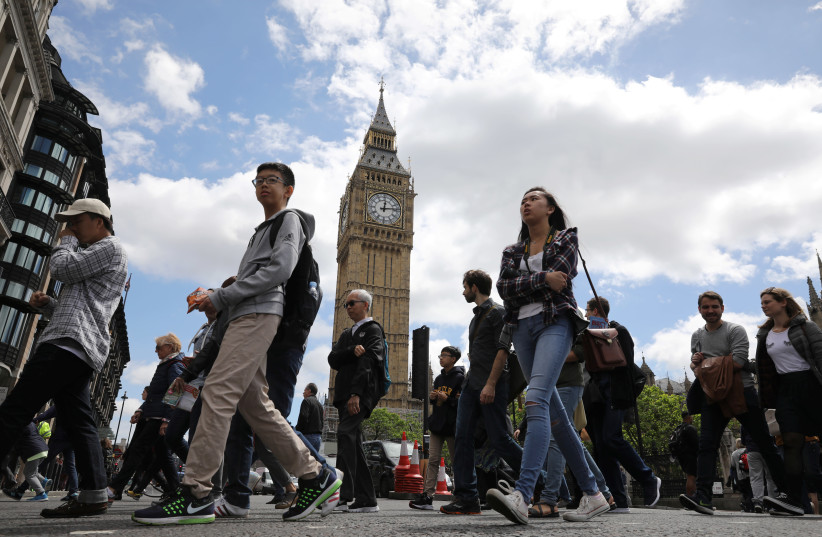Canceling daylight saving time could be detrimental to people’s health, according to a peer-reviewed study. The study, by José María Martín-Olalla of the University of Seville, was published in August in International Chronobiology.
He concluded that due to the UK’s long-standing daylight saving time observation, Britons start their daily activities exactly as the sun rises in winter. By comparison, the Germans, who did not observe daylight saving time for 30 years in the 20th century, start their day earlier. He noted that increasing activity in the first winter mornings presents increased risks and is physiologically disadvantageous.
Because they start their day in the dark hours of the winter morning, Germans tend to rely on artificial light and their bodies take time to “catch up,” StudyFinds noted.
A round watch bearing the effigy of the French Emperor Napoleon I is on display at the Osenat auction house, before being auctioned for the bicentenary of Napoleon’s death, in Fontainebleau, near Paris, France, on April 30, 2021 (credit: REUTERS / SARAH MEYSSONNIER)
Just as canceling daylight saving time could distort people’s sleep cycles, maintaining daylight saving time presents its own set of risks to human health. Ideally, people’s daily activities should begin when the sun rises, and daylight saving time is “effective in aligning the start. [of] the working day with the sunrise “and” regulate human activity according to the seasons “in the intermediate latitudes, according to the study.

